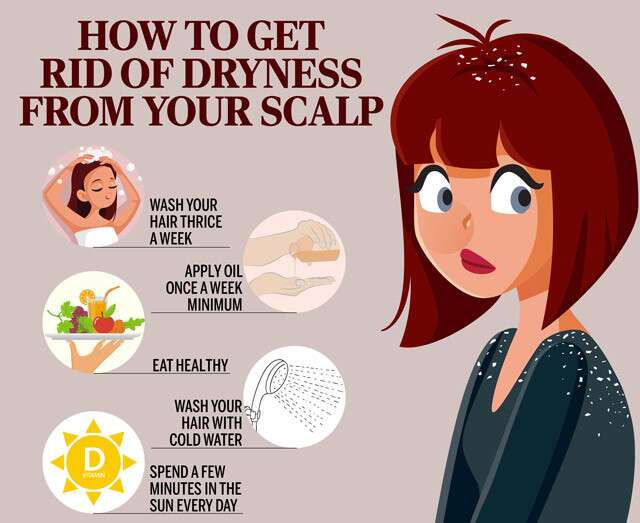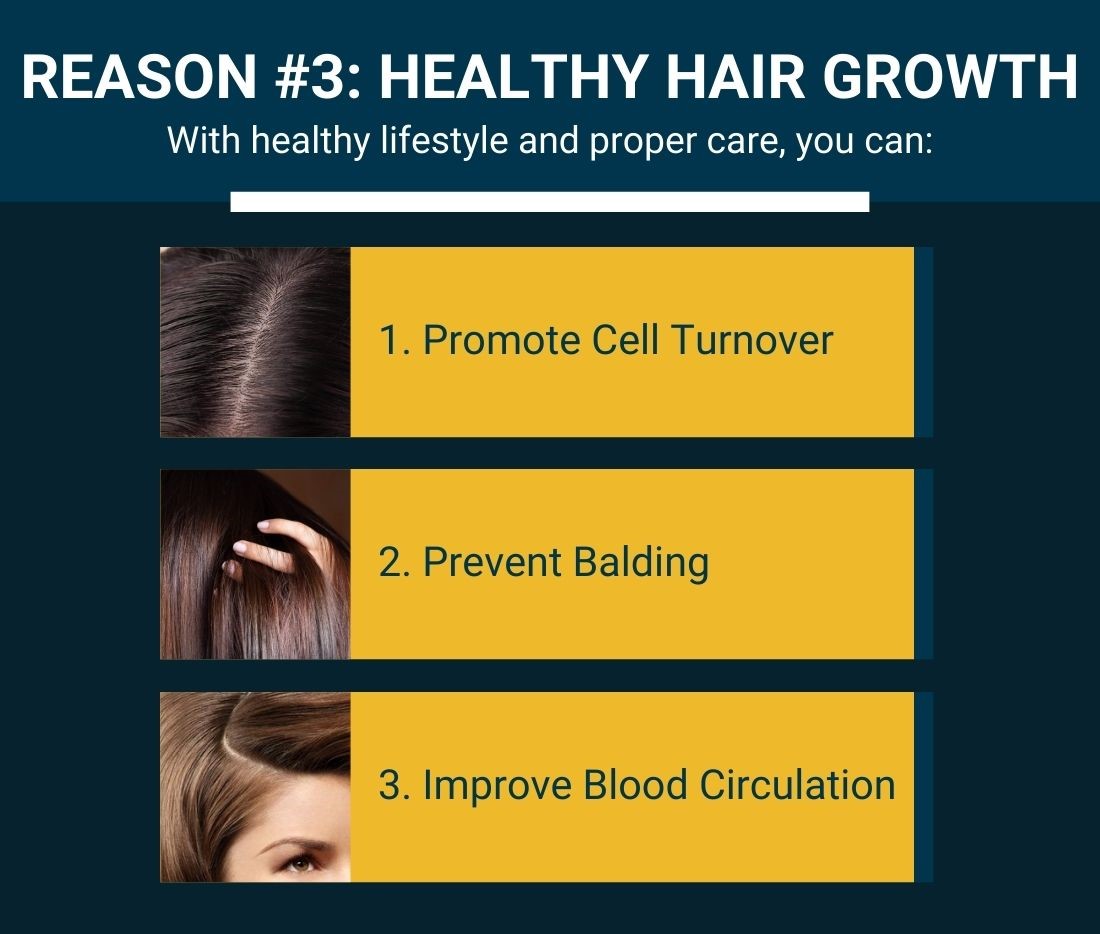Common Scalp Issues and Their Causes
Common scalp issues like dandruff, psoriasis, and seborrheic dermatitis can be frustrating and embarrassing. These problems may lead to hair loss and weakened locks. Understanding the causes of these issues is crucial for effective treatment and prevention.
Dandruff and Its Triggers
Dandruff is a common scalp problem affecting millions of people worldwide. It can be caused by various factors, such as an overgrowth of yeast on the scalp, skin conditions like psoriasis or seborrheic dermatitis, and environmental factors. Bad hair habits, stress, and hormonal changes can also trigger dandruff. To combat dandruff, it is essential to identify and address its root cause.
Psoriasis and Its Impact on Scalp Health
Psoriasis is an autoimmune skin condition that can affect any part of the body, including the scalp. It causes red, scaly patches on the skin, which can be itchy and painful. Psoriasis on the scalp can lead to hair loss and negatively impact a person’s self-esteem. Treatment for scalp psoriasis often includes topical medications and lifestyle changes to manage stress and maintain a healthy diet.

Seborrheic Dermatitis and Its Symptoms
Seborrheic dermatitis is a skin disorder that causes dry, flaky skin on the scalp and face. It is often triggered by hormonal imbalances, stress, and environmental factors. Symptoms of seborrheic dermatitis include redness, itching, dryness, and greasy or oily patches. Treatment for this condition typically involves medicated shampoos and creams, as well as lifestyle modifications to reduce stress and improve overall skin health.
In addition to these common scalp issues, other factors can also contribute to hair loss and poor scalp health. For example, iron deficiency, vitamin B12/D deficiency, and hypo/hyperthyroidism can lead to excessive daily hair shedding. Furthermore, a lack of essential nutrients like omega-3 in your diet can exacerbate flaky and itchy scalp conditions.
Maintaining a healthy scalp is vital for strong, beautiful hair. By understanding the causes of common scalp issues and adopting preventive measures, you can keep your hair and scalp in top condition. If you are struggling with persistent scalp problems, it is essential to consult a dermatologist for professional advice and treatment.
The Impact of Poor Scalp Health on Hair Growth
An unhealthy scalp can wreak havoc on your hair growth and even lead to hair loss. Prolonged exposure to the sun, sweat buildup, and poor hygiene can clog pores, creating an environment that hinders hair growth. In fact, inflammation caused by poor scalp health can interfere with hair follicles’ ability to grow hair.
One way to combat these issues is by using products like Nutrafol’s Scalp Mask, which dissolves pore-clogging oils and exfoliates the scalp. For those with dry and sensitive scalps, Nutrafol’s Scalp Essence can provide soothing relief.
Consistency is key when it comes to maintaining a healthy scalp. This includes sticking to a hair growth nutraceutical routine, even during changes in diet and hydration. Remember, buildup from oils and hair products can suffocate hair follicles, contributing to hair loss.
Scalp conditions like dandruff, psoriasis, and seborrheic dermatitis can also negatively impact hair growth and cause hair loss. Moreover, lifestyle factors, such as stress, can affect scalp health and contribute to hair loss.

Surprisingly, dry shampoo, a popular quick fix for greasy hair, can cause more harm than good. It may not remove oil and grime, leading to blocked hair follicles, inflammation, and weakened hair follicles over time. This can result in hair loss and dandruff.
To promote healthy hair growth, it’s essential to maintain a clean scalp. Dead skin, pollution, and sweat can weaken hair shafts and cause unhealthy hair growth. Yoga poses like Sarvangasana, Sirsasana, and Adho Mukha Svanasana can help improve hair growth by enhancing body posture, increasing blood circulation in the head, reducing stress hormones, and stimulating blood flow in the scalp.
Despite the potential risks of dry shampoo, the market is expected to reach an estimated $3.5 billion by 2027. This highlights the importance of choosing a safe formula, especially after a 2022 recall due to “potentially elevated levels” of a cancer-causing chemical.
In summary, taking care of your scalp is crucial for preventing hair loss and promoting healthy hair growth. This includes maintaining a clean scalp, using safe and effective products, and adopting a healthy lifestyle to reduce stress and improve overall well-being.
Natural Remedies for Scalp Health
Maintaining a healthy scalp is essential for promoting hair growth and preventing hair loss. Thankfully, there are several natural remedies that can help you achieve a healthy scalp without breaking the bank. These remedies are not only cost-effective but also free from harsh chemicals that can damage your hair and scalp.
Essential Oils for Scalp Health
Essential oils like rosemary and peppermint can work wonders for your scalp. They promote blood circulation, nourish hair follicles, and support healthy hair growth. You can add a few drops of these oils to your regular shampoo or mix them with a carrier oil for a soothing scalp massage.
Aloe Vera for Soothing Relief
Aloe vera gel is another excellent natural remedy for scalp health. It contains enzymes that may stimulate hair follicles and has soothing properties that can help alleviate scalp irritation. Apply pure aloe vera gel directly to your scalp and leave it on for 15-20 minutes before rinsing it off.
Egg Masks for Stronger Strands
Eggs are protein-rich and can provide essential nutrients for hair growth.

Create an egg mask by whisking an egg with a tablespoon of olive oil and applying it to your scalp and hair. Leave the mask on for 20 minutes before washing it off with a mild shampoo.
Focus on a Balanced Diet
A well-rounded diet is crucial for healthy hair growth. Include foods rich in Omega-3 fatty acids, Vitamin C, and biotin to nourish your hair from within. Some examples are salmon, citrus fruits, and nuts.
Tea Tree Oil and Apple Cider Vinegar
Tea tree oil and apple cider vinegar are known for their antimicrobial properties, which can help maintain a healthy scalp. Add a few drops of tea tree oil to your shampoo or dilute apple cider vinegar with water for a refreshing scalp rinse.
Remember, consistency is key when it comes to scalp care. Incorporate these natural remedies into your routine and enjoy the benefits of a healthy scalp and beautiful hair. If your scalp issues persist, consider consulting a dermatologist for professional advice.
Preventive Measures for Scalp Health
Taking care of your scalp is essential for maintaining healthy hair and preventing issues like dandruff and hair loss. Here are some preventive measures you can adopt to ensure a healthy scalp.
Adopt a Balanced Diet
A diet rich in essential nutrients is crucial for maintaining healthy hair. Include foods high in protein, iron, and vitamin C, such as nuts, eggs, whole grains, and lean meat, to nourish and strengthen your hair from the inside out.
Exercise Regularly
Regular exercise promotes circulation to the scalp, encouraging healthy hair growth. Simple activities like a morning walk or jog can help maintain overall health and boost hair growth.
Practice Yoga
Yoga is an excellent way to increase blood flow to the scalp and aid digestion, which is essential for nutrient absorption. Poses like the “cobra pose” and “camel pose” can promote hair growth and scalp health.
Get Enough Sleep
Quality sleep is vital for overall health, including hair growth and scalp health. Poor sleep can lead to stress, a primary cause of hair thinning and hair loss.

Avoid Damaging Hair Habits
Steer clear of harsh chemical treatments, tight hairstyles, and excessive heat styling, as these can damage the hair and scalp, leading to dandruff, hair thinning, and hair loss.
Choose Natural Hair Care Products
Opt for natural ingredients over harmful chemicals found in many hair care products. Companies like The Love of People (TLP) offer natural hair care products specifically designed for black women’s hair health.
Wash and Exfoliate Regularly
Regular washing and exfoliating can remove dead skin cells, preventing dandruff and other scalp issues. Dandruff shampoos with ingredients like zinc pyrithione and peppermint can help reduce dandruff caused by environmental factors or skin conditions.
Protect Your Hair in Summer
During summer, shield your hair from UV rays, get regular trims, use a leave-in conditioner, massage your scalp, and maintain a healthy diet and sleep schedule.
By incorporating these preventive measures into your daily routine, you can significantly improve your scalp health and maintain strong, healthy hair. If you’re concerned about hair loss or persistent scalp issues, consult a doctor or trichologist for professional advice.
When to Consult a Dermatologist
Maintaining a healthy scalp is crucial for promoting hair growth and preventing hair loss. However, sometimes home remedies and preventive measures may not be enough to combat persistent scalp issues. In such cases, it’s essential to consult a dermatologist for professional help.
Signs That Indicate Professional Help is Needed
If you’re experiencing itching, flaking, redness, or unusual hair loss, it’s time to seek expert advice. Persistent dandruff that doesn’t go away with over-the-counter shampoos can also be a sign that you need a dermatologist’s help.
Scalp issues like psoriasis, acne, folliculitis, alopecia areata, ringworm, and cysts require medical attention. Moreover, changes in skin appearance can be signs of skin cancer and should not be ignored.
It’s important to remember that scalp issues can be an early warning sign of other underlying health issues, such as hormonal imbalances or nutrient deficiencies. In such cases, a dermatologist can help diagnose and treat the root cause.
Stress and Medical Conditions Affecting Scalp Health
Stress and underlying medical conditions like hypothyroidism can lead to hair loss and require a dermatologist’s help.

A professional can recommend appropriate treatments and lifestyle changes to manage stress and improve overall scalp health.
Scalp Treatments and Hair Growth Products
A dermatologist can suggest professional scalp treatments like scalp massages and scalp facials to improve scalp health and promote hair growth. They can also recommend hair growth products that contain key ingredients like natural humectants, keratin proteins, green tea extract, probiotics, argan oil, patented Procaphil, and Redensyl. These products promote thicker strands, elongate the growth cycle, provide hydration to prevent breakage, and create an optimal scalp environment for hair growth.
One such product is the EVOLVh Better Roots RootBoost Serum, a nourishing serum that supports overall scalp health and creates the perfect environment for hair growth.
In conclusion, it’s essential to recognize when home remedies and preventive measures are not enough to maintain a healthy scalp. Consulting a dermatologist can help diagnose and treat persistent scalp issues, ensuring optimal hair growth and overall scalp health.
